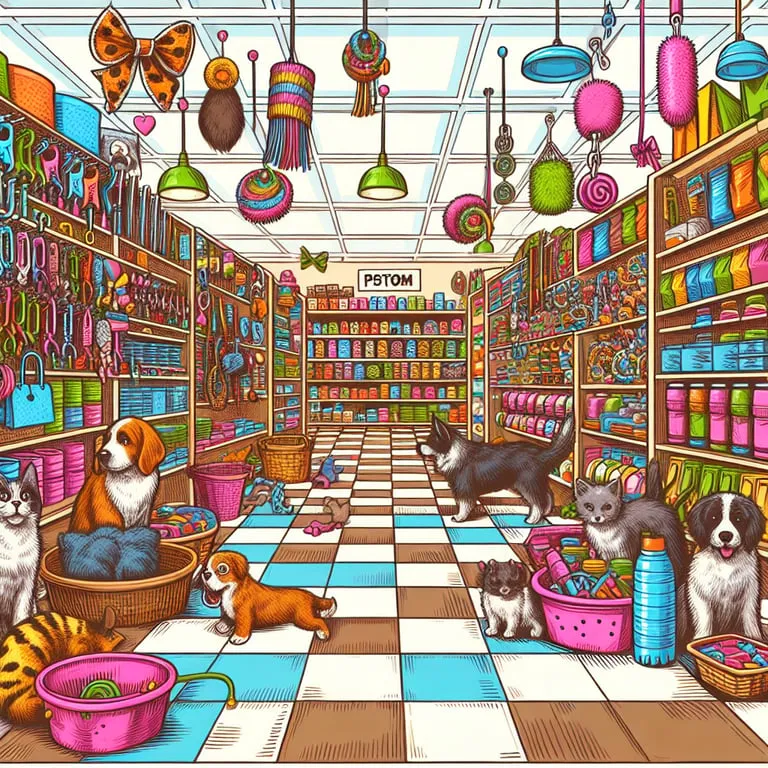
The burgeoning pet care industry in South Korea is reshaping the market landscape as declining birth rates pivot consumer priorities from baby goods to pet products. This trend underscores significant demographic shifts and changing lifestyles.
Rising Pet Product Market
The sales dynamics in South Korea reveal an astonishing preference for pet products over baby goods. The data from 2023 indicates that 69% of combined sales for pet food and baby formula are attributed to pet food, a trend that has been evident since 2021. Stroller sales also reflect this shift, with 57% designed for pets, surpassing those for infants.
Pet Food vs. Baby Formula
Pet food sales outpace baby formula sales by more than 10 percentage points, highlighting the shift in economic focus and household priorities. This shift is not just a fleeting trend but a reflection of South Korea’s evolving societal values amid decreasing birth rates.
Pet Mobility Over Infant Mobility
The increasing popularity of pet strollers over traditional infant strollers illustrates the priority shift in consumer spending. Households are investing more in pet mobility solutions, indicating a change in lifestyle and family dynamics.
Healthcare and Demographic Patterns
The disparity between veterinary and children’s hospitals further emphasizes the trend towards pet ownership. As of late 2023, there were twice as many veterinary hospitals compared to children’s hospitals, signifying a stronger demand for veterinary care as pets become integral to families.
Veterinary vs. Pediatric Care
The ratio of veterinary to children’s hospitals at 2:1 underscores the significant demand for pet healthcare, reflecting the country’s changing demographic landscape. This trend closely correlates with the decreasing birthrate and the decision of many families to opt for pets instead of children.
Pet Registration Outnumbers Births
In Seoul, the number of registered dogs from 2014 to 2023 surpassed the number of newborns, highlighting a societal shift towards favoring pets as companions over expanding human families.
Birthrate Decline and Societal Impact
South Korea’s average expected births per woman have fallen to an unprecedented low of 0.76, far below the replacement rate required to maintain population levels. This declining birthrate significantly impacts social structures and economic forecasts.
Changing Family Dynamics
The traditional family structure is evolving, with more households choosing pets for companionship and emotional support. By 2022, over 5.5 million households embraced pet ownership, accounting for a substantial portion of the population.
Future Market Projections
Industry experts predict that the pet care market will continue to flourish, with expectations to reach 6 trillion won by 2027. This growth showcases a sector ripe for investment, driven by changing consumer behaviors and societal needs.
Implications for Businesses and Policymakers
The shift towards pet ownership and the growing pet care market has broader implications for businesses and policymakers alike. Retailers and e-commerce platforms are shifting focus to accommodate this demand by offering a wide array of pet products and services.
Retail and E-commerce Adaptation
Businesses are rapidly adapting to the new market landscape by expanding their product ranges to include organic pet foods, luxury pet strollers, and other pet-centric products. This adaptation is essential for staying competitive in the changing market.
Policy Adjustments
Policymakers face the dual challenge of addressing declining birthrates while supporting the growing pet owner community. Developing strategies that create a family-friendly environment and cater to pet owners could offer a balanced approach to demographic challenges.
In conclusion, South Korea’s pet care industry is not merely a commercial phenomenon but a reflection of broader societal changes. As the nation grapples with a low birthrate, the rise of the pet market highlights evolving lifestyles and consumer priorities. Businesses and government entities must collaboratively navigate this dynamic landscape to sustainably address the challenges and opportunities that lie ahead. The pet care industry’s growth is a testament to changing domestic realities, and its influence will likely shape South Korea’s economic and social trajectory in the coming years.
http://www.petmediapress.com/